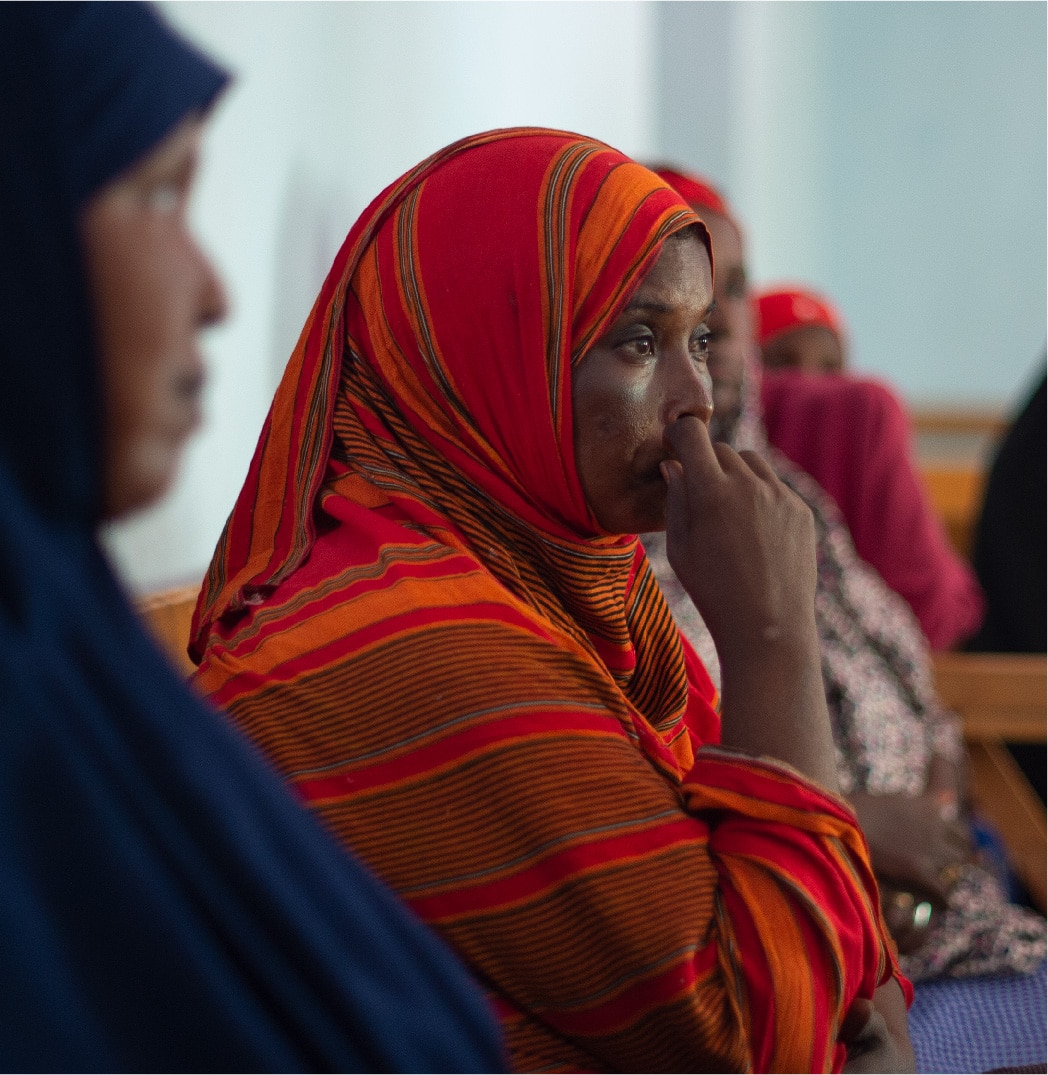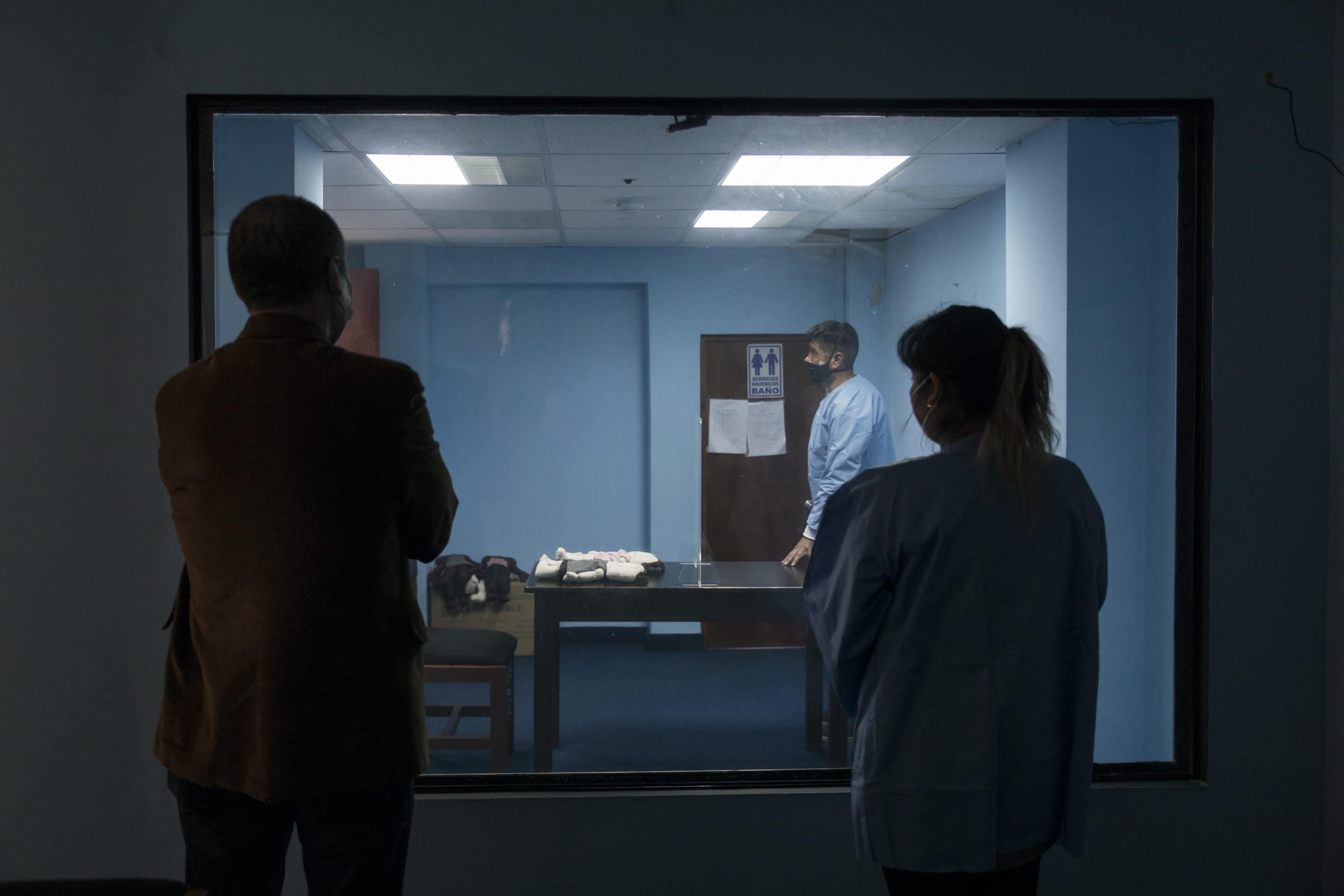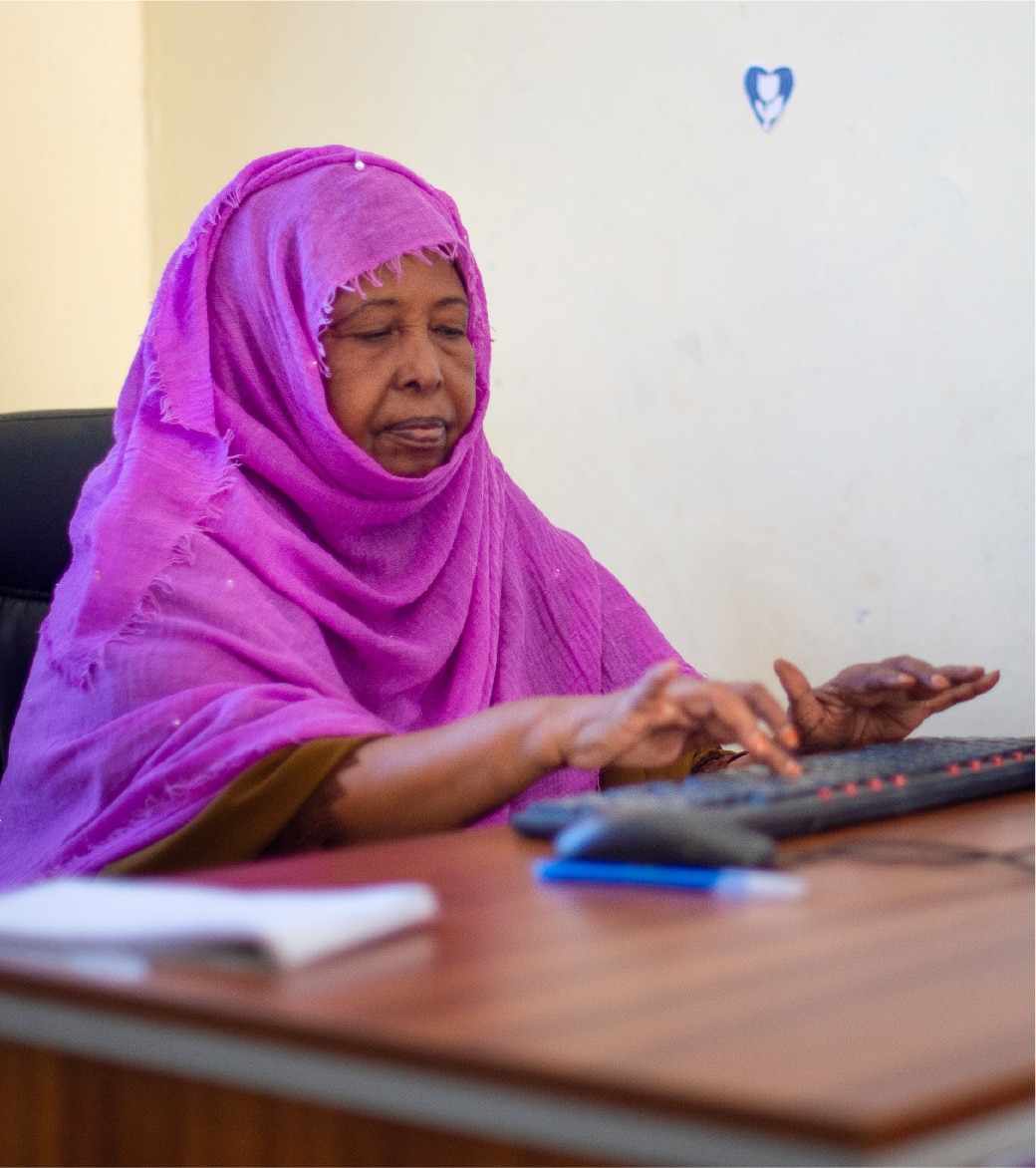Focus
Gender Justice
Progress towards equal power and equal rights for women remains elusive around the world. Globally, discriminatory laws, policies and attitudes remain common and ingrained. In crisis settings, women often bear the brunt of violence, marginalisation, and economic exclusion. Still, women continue to be under-represented in decision-making roles that directly impact their lives, safety, and well-being.
UNDP works towards ensuring that gender justice remains high on the global agenda as it is a vital component of our work and a cross-cutting theme throughout all the portfolios, including Justice, Security and Human Rights. At the global level, UNDP continues strengthening its partnership with UN Women on gender justice, through programming initiatives in more than 10 contexts, joint research studies on the role of women in justice and security sectors as well as building a network of partners. The team continuously supports country offices to achieve gender justice and equality, including through technical, financial and policy support on legal protection, gender-sensitive justice and security sector reforms, development of legal aid services, women’s meaningful inclusion in transitional justice mechanisms and constitutional reforms.

A group of women listen to court proceedings while attending a session at the Garowe courts in Puntland, Somalia, on 27 August 2020. © UNDP, Tobin Jones
UNDP – UN Women: Gender Justice Partnership
In April 2020, UNDP launched the Gender Justice Partnership through the Global Programme on Strengthening the Rule of Law and Human Rights for Sustaining Peace and Fostering Development, in partnership with UN Women, with funding from the Government of the Netherlands. UNDP and UN Women are working towards increasing access to justice for the most vulnerable women and girls by addressing their immediate needs while working on strengthening the institutional effectiveness and accountability of the judicial system and the legislative framework. The programme seeks to empower women to seek solutions and provide them with quality services throughout their justice journey using a people-centered approach. The purpose of this joint programme is to increase access to justice, security, and respect for human rights in contexts affected by conflict, crisis, and fragility – especially for women, and for vulnerable and marginalized groups.
Achievements within the programme thus far include addressing the legal needs of Palestinian women victims of violence in the workplace whose employment status has been impacted by the COVID-19 pandemic; and supporting the development of a national roadmap for legislative reform in Ethiopia to address laws that discriminate based on gender. In Uganda, the programme supported 236 women and girls to access essential services to address gender-based violence (GBV), specifically in rural and remote areas. In Lebanon, the project ensured that vulnerable women had access to protection services, including migrant workers and women at risk, such as survivors of GBV due to COVID-19 related circumstances. As a result, 2,065 people received justice-related support in Lebanon.
To reinforce coordinated support, UNDP and UN Women collaborate with multiple other partners, including on the ground, to promote gender justice. These partnerships encompass civil society organizations, women leaders, national justice actors, governmental institutions, and other UN entities. In 2020, nine contexts benefitted from the joint activities aimed at ensuring gender equality and expanding access to justice for women and girls: Democratic Republic of Congo, Ethiopia, Lebanon, Mali, Nigeria, South Sudan, State of Palestine, Tunisia, Uganda.
One joint global study was launched examining women’s participation in transitional justice processes and another one will soon be launched on women in the judiciary. UNDP and UN Women will continue to take steps to broaden the partnership in order to galvanize the progress in implementing gender justice initiatives together and around the globe.

Gesell Chamber in the Lima Northwest fiscal district in Peru for individual gender-sensitive interviews with victims of violence. ©UNDP Peru, Adrián Portugal

At 60, Safiya Jama Gayre graduated from a 4-year law programme in Somalia set up by UNDP and Puntland State University to increase the number of women legal professionals. She now works on cases related to women’s rights. ©️ UNDP Somalia, Tobin Jones
Gender Justice in Arab States: still a long way to go
The Arab States region has the second widest gender gap in the world after South Asia, as measured by the Gender Development Index (GDI), with women lagging behind particularly in income and work participation. Women’s economic inequality is rooted in discrimination and acts as a severe barrier to their accessing justice.
Several Arab countries have developed national strategies and laws to address gender inequality. But, like everywhere else, COVID-19 has set back progress with women increasingly confined to the home, more vulnerable to violence and abuse and less able to access services. In Jordan and Lebanon, for instance, when restrictions of movements were introduced employers sent home women employees first. Similarly, despite the gradual reopening of economic activities as of early May, day care centres in Jordan have remained closed, forcing many women to remain home to take care of their children. According to one survey1 there was a high rate of perceived increase in abuse of or violence against women in Tunisia (63%), followed by Algeria and Morocco (41%, respectively), while the perceived increase of gender-based violence in Jordan is 27%, and in Lebanon is 20%.
The need to integrate gender into recovery planning has been emphasised by a number of reports and UNDP’s country programmes have worked to ensure that GBV programmes were not deprioritized by national institutions during the pandemic. In Tunisia, for example, more than 300 internal security force agents were trained in the reception of and support to women and girl victims of violence. In Lebanon, UNDP supported emergency responses, including a roster of legal advisers trained and specialized in GBV and provided free legal aid through a hotline. In the State of Palestine, UNDP’s programme supported the adoption of an emergency protocol for survivors of violence that secures the placement of women victims of SGBV in quarantine centers and organizes their testing for COVID-19 and longer-term referrals. Prior to this, women who were escaping from their abusers did not have the possibility to remain in shelters, owing to the risk they represented for other survivors with regard to COVID-19 transmission.
Under the “Gender Justice and Equality Before the Law” Regional Project (implemented jointly with UN Women, UNFPA and ESCWA) researchers gathered data and analysed a range of laws and policies from almost all 20 countries in the region through a gender equality lens. These include the legal frameworks on: representation in public bodies; GBV; inheritance; nationality; labour laws; and sexual and reproductive rights. This expands on previous phases of the project which gathered data on a narrower list of gender equality indicators and created a regional dashboard.
The data gathered in 2020 will be validated with national stakeholders in 2021 before publication in the form of country reports and an updated Gender Justice Dashboard.
1Arab Barometer Wave 6 Part 1 https://www.arabbarometer.org/2020/12/covid-19-magnifies-pre-existing-gender-inequalities-in-mena